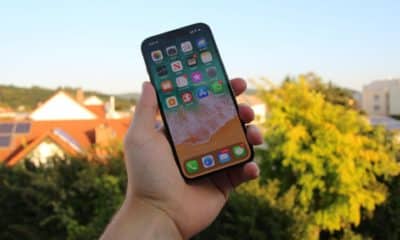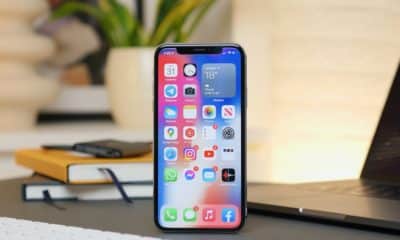Phones
Why Some APKs Are Not in the Play Store?

Android Application Packages, better known as APKs, are the standard format for distributing and installing applications on Android devices. They are essentially the .exe files for Android, containing all the elements necessary to run an app. The Google Play Store is the most recognized platform where users can download these APKs, offering a diverse and extensive library of applications, from games and productivity apps to social networking and entertainment services.
However, you may have noticed that you are unable to find some APKs on the Play Store. This article will explore why some APKs are not in the Play Store, examining Google’s policies, developer choices, geographical and content restrictions, and the concept of sideloading.
The Role of Google’s Policies in App Availability
Google’s app policies govern what apps are allowed on the Play Store. They cover a wide range of categories, from user privacy and data protection to content regulations and intellectual property rights. An APK that doesn’t adhere to these policies won’t be permitted on the Play Store. For instance, if an app is suspected of harboring malware or engaging in deceptive behavior, Google will deny its inclusion in the store.
Google enforces a stringent privacy policy. Apps that indiscriminately access or collect user data without explicit user consent are subject to removal. This strict enforcement protects users from intrusive apps that may compromise their privacy and security.
Intellectual property rights are also keenly protected. Google will not entertain apps that infringe on the copyrights or trademarks of other entities. Some APKs may not be on the Play Store because they include copyrighted content without the necessary permissions or licenses.

Developer Choices and Play Store Exclusion
Sometimes, it’s not Google that decides to exclude an APK from the Play Store but the developers themselves. There are several reasons why a developer might opt for this.
Control over app distribution: Some developers prefer to distribute their apps independently to maintain full control over updates and user experiences. They may use their own websites or third-party app stores, thereby bypassing Google’s policies and its 30% commission on in-app purchases.
Adult content: Google’s content restrictions, particularly those regarding explicit adult content, lead some developers to sidestep the Play Store. While these APKs must still follow legal guidelines, they avoid Google’s more stringent content regulations.
Examples of popular apps not listed on the Play Store include Fortnite and Amazon’s Appstore. Fortnite was removed from the Play Store in 2020 due to a dispute over in-app purchase fees, and while Amazon’s Appstore competes directly with Google, its existence is permitted because it’s downloaded from the web, not through Google’s store.
The Issue of Geographical Restrictions
Geographical restrictions on the Play Store may also lead to some APKs not being available in certain regions. Google, like many digital service providers, imposes restrictions based on the user’s geographical location, often due to legal reasons or licensing agreements.
These restrictions could mean that while an app is available on the Play Store in one country, it might not be accessible in another. For instance, some streaming apps, banking apps, or games may be region-specific due to licensing agreements, regulations, or strategic business decisions.
Consequently, users might resort to downloading these APKs from other sources, making it appear as if these apps are not in the Play Store when, in fact, they are but are just region-locked.

The Influence of Content Restrictions
Google Play Store’s content restrictions play a significant role in determining which APKs are allowed on the platform. These policies are put in place to create a safe and appropriate environment for users of all ages.
Content that promotes violence, hate speech, or explicit adult content is not permitted. APKs that do not adhere to these policies will not be listed. For instance, an app promoting illegal activities, containing explicit adult content, or encouraging hate speech will be rejected.
Moreover, Google is stringent about misleading content and scams. Apps that misrepresent their functionality or trick users into making unwarranted purchases will be pulled down. Similarly, apps that imitate other popular apps in an attempt to deceive users are also not permitted.
The Concept of Sideloading APKs
Sideloading refers to the practice of installing an APK directly onto a device without using the official Google Play Store. This method is often used for APKs not listed on the Play Store.
Sideloading can be beneficial for developers and users alike. It allows developers to distribute their apps without needing to comply with Google’s policies or pay a cut of their profits. For users, it can provide access to a wider range of apps, including those not available in their region on the Play Store.
However, sideloading is not without risks. Since APKs installed this way don’t undergo the same security checks as those on the Play Store, they can potentially include malware or other security threats. It’s crucial that users only sideload APKs from trusted sources.
Conclusion
In conclusion, the presence of an APK on the Google Play Store is influenced by a myriad of factors, including Google’s policies, developer choices, geographical restrictions, and content restrictions. While the Play Store aims to offer a vast and diverse selection of apps, these guidelines and restrictions ensure a safe and secure environment for users.
However, it’s essential to remember that not all APKs found outside the Play Store are safe or legal. While sideloading APKs can bypass some restrictions, it can also expose users to potential security risks. Always exercise caution when downloading and installing APKs from sources other than the official Google Play Store.
-

 Business5 months ago
Business5 months agoBest Technology Companies To Work For: 10 Top Picks For You
-

 Business5 months ago
Business5 months agoLatest Developments In Artificial Intelligence: 5 Best Breakthroughs
-

 Development and Hacking4 months ago
Development and Hacking4 months agoEmerging Technologies In Cyber Security: Full Guide In 2025
-

 Phones4 months ago
Phones4 months agoFind My Phone Using Google Account: Full How To Guide (5 Steps)
-

 Business4 months ago
Business4 months agoBest Tech Cities In The US: 7 Opportunities You Shouldn’t Miss Out
-

 Phones3 months ago
Phones3 months agoFind Samsung Phone: 6 Great Ways To Find Lost Or Stolen Device
-

 Phones2 months ago
Phones2 months agoAll Google Apps: Ultimate Guide For The Most Useful Ones (2025)
-

 Phones3 months ago
Phones3 months agoSwitch From iPhone To Android: 7 Reasons For Switching Sides




























